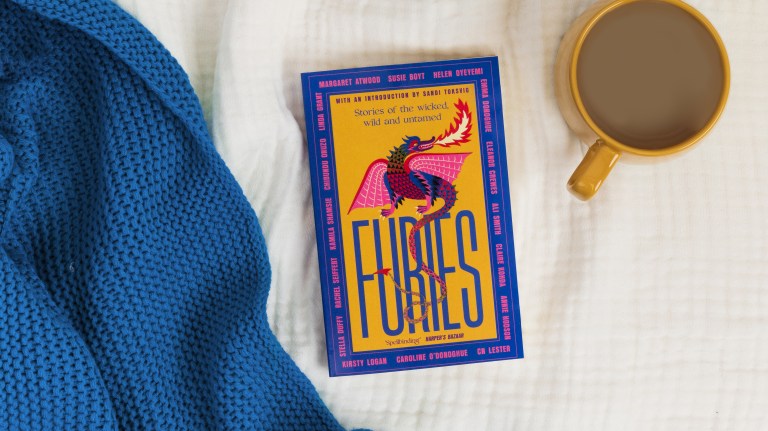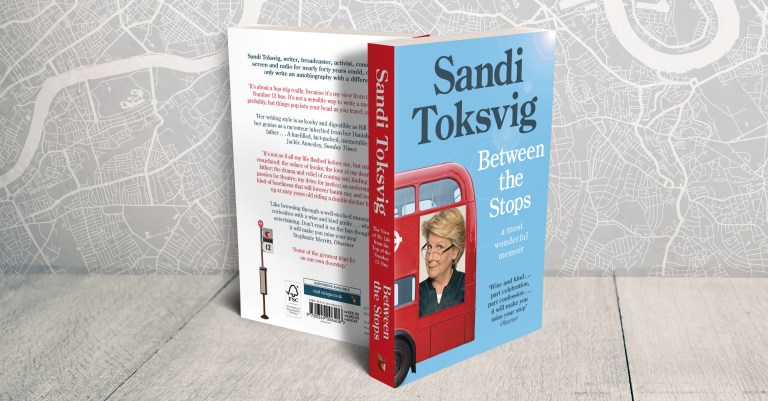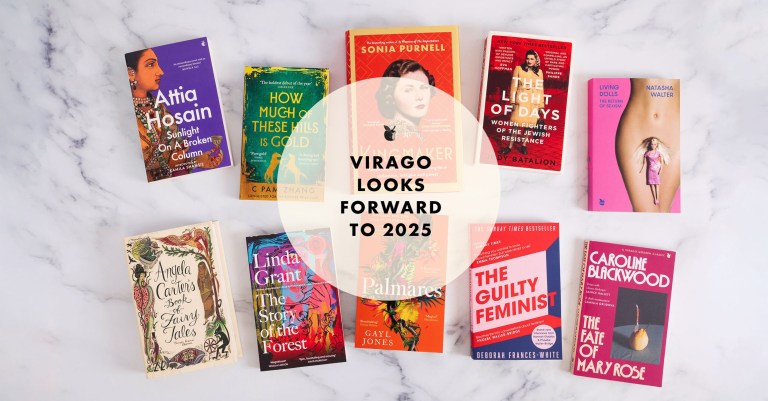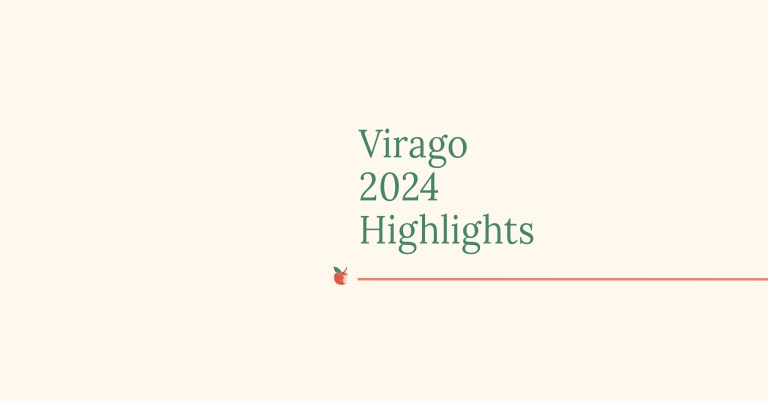An extract from The Red Bird Sings by Aoife Fitzpatrick
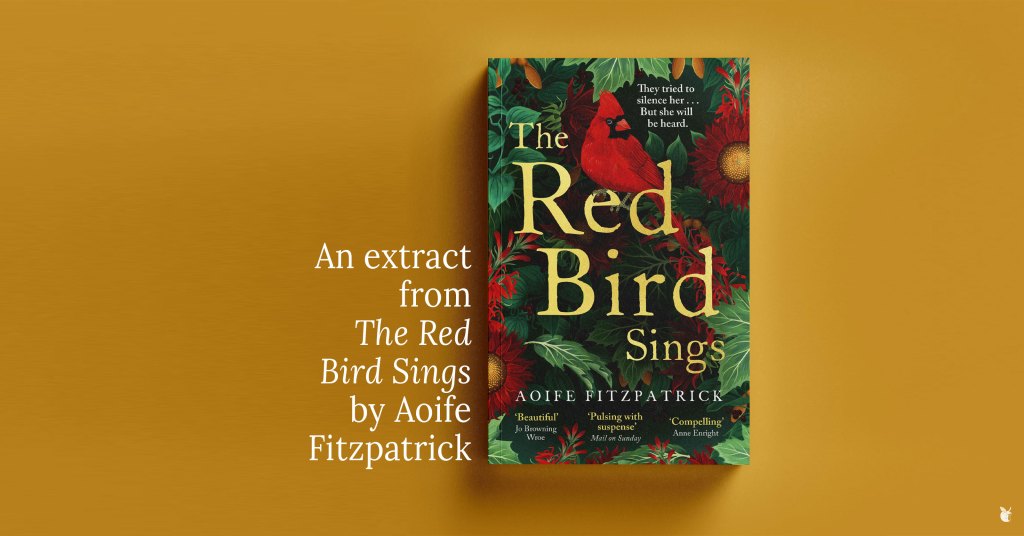
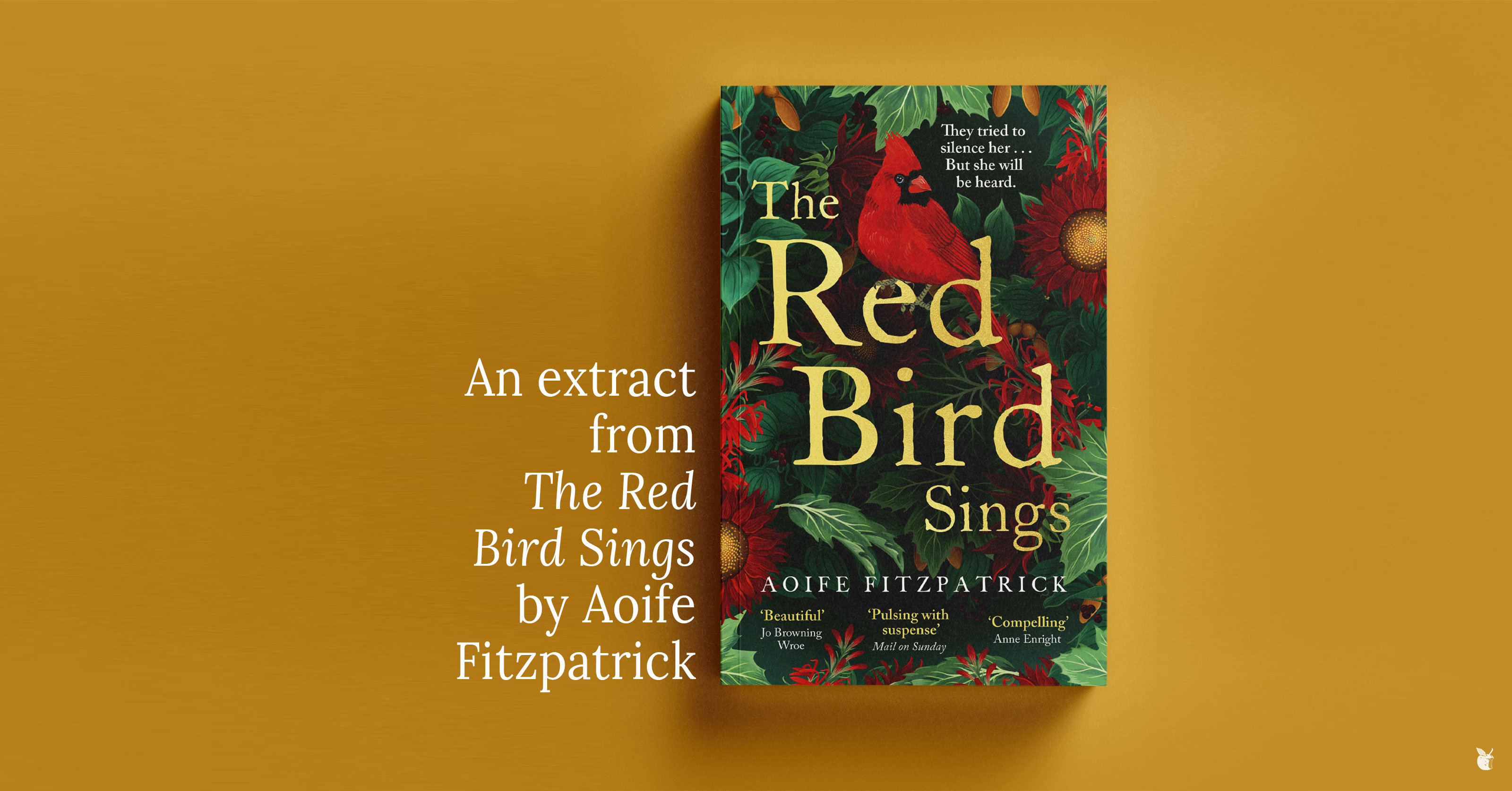
West Virginia, 1897. When young Zona Heaster Shue dies only a few months after her wedding, her mother Mary Jane becomes convinced that Zona was murdered – and by none other than her husband, Trout, the handsome blacksmith beloved in their small Southern town.
But when Trout is put on trial, no one believes he could have done it, apart from Mary Jane and Zona’s best friend Lucy, who was always suspicious of Trout. As the trial raises to fever pitch and the men of Greenbrier County stand aligned against them, Mary Jane and Lucy must decide whether to reveal Zona’s greatest secret in the service of justice. But it’s Zona herself, from beyond the grave, who still has one last revelation to make.
This story is inspired by real events that took place in Greenbrier County, West Virginia, in 1896 and 1897. In certain cases, incidents, characters and timelines have been altered for dramatic purposes. Certain characters may be composites, or entirely fictitious.
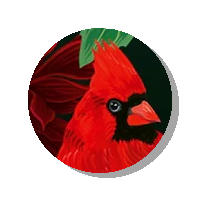
PART ONE
1896
Corn Harvest to Watchnight

FROM:
THE TRIAL OF TROUT SHUE
A TRUE STORY
CONTAINING HITHERTO
SUPPRESSED FACTS
by Lucia C. Frye
On June 22, 1897, Miss Minnie Grose, recently graduated from the Lewisburg Female Institute, took her seat in the Greenbrier County Circuit Court, and in the shadow of the bench where Justice Joseph McWhorter presided, she set her hands to the stenotype machine. The temperature was holding above ninety degrees, the paper wilting as Miss Grose struck the keys, feeding the narrow roll toward the floor. Upon this cream pulp was the court’s official record – the only evidence that the jury would be allowed to consider in the trial of Trout Shue for the murder of his wife, Zona Heaster Shue.
This transcript was to make no mention of Mary Jane Heaster, mother of the victim, who rose from her seat in hatless dishevelment as the defendant took the stand. Dressed in full mourning, her percale unfashionably loose, she might have been painted, stark, upon the glowing summer air – the frock in blackened bone, the face and hands primed in grey, her expression uncommonly frank.
Mr Shue wore a fresh linen suit and a starched white shirt, both of which he had begged from his jailer, Constable Shawver. And with his mild gaze resting on the jury, he made his plea:
‘Not guilty.’

1 | Lucy Frye
Livesay/Meadow Bluff
September 16, 1896
Her mother kept urging her to get rid of the Remington, but Lucy couldn’t imagine life without it sitting smart and modern on the dressing table.
Each silver letter was tiny and exquisite on the end of its own metal stalk, and there were few things more satisfying than firing them at the ink ribbon, punching words onto the page. She enjoyed the violence of the click; the permanence of the brand.
When she was buying the used typewriter from the Greenbrier Independent, the editor had doubted her stamina to wallop the stiff keys – questioned her ability to change the ribbon and align the arms so that the basket didn’t end up in a snare. But after only a few months of practice, here she was typing more than seventy words per minute with as many as four cooperative fingers. The tower of writing beside her elbow was a triumph of sorts. Yet the higher this column grew, the worse she felt, riddled as it was with her failed attempts at newspaper articles.
She winced at the titles poking out of the dereliction. ‘Have a Dirty Cut? Dial Franklin 448’. That was the one about the new antitoxin, written after little Prudie Thorne died of lockjaw. The Independent had turned its nose up, advising her to stick to women’s affairs, before publishing an identical article
under the editor’s name. Dog- eared, near the top of the pile, she spied ‘Neglect Felt by Society and Community’, a report on the recent scandal at the State Fair when not one woman in the county had competed in the hosing or glove departments. If you were to believe the judges, it was a moral disaster. But the newspaper turned this down, too, telling her to come back with something more cheerful, about fashion, or the household – maybe society.
Dejected at the memory, she dropped onto the chair and grasped her tin of rouge, its equator seeping scarlet. She prised off the lid and leaned toward the mirror, daubing each cheek. It didn’t look right, as usual, though her mother insisted that she try. The crimson might enhance the attractive cushion of a cheek like Zona’s. On her own face, it highlighted her homeliness, and once she’d cycled as far as the Heasters’ farm, it would double up on her redness, too.
Fingers greasy and lurid, she tugged at the paper in the typewriter carriage until it came free. When it was smoothed on the table, she had the strong urge to stay home and finesse her morning’s writing. This hesitation to visit the Heasters was new. She had never felt it, nor any need to shore up her appearance, before meeting Trout Shue. The man had this subtle demeanour when he looked at her – eyes narrowed, always seeming to wish her different in some unspecified way. Whether she was reserved or outgoing, silly or serious, his little frowns and sighs told her that he was never happy. Meanwhile, he worshipped everything about Zona. Her best friend had been praying for Trout to propose marriage, while her own special wish was for the blacksmith to pack up and move on.
She wriggled into the neat jacket of her bicycle suit, regret hard and polished in her chest, because it was her own fault that they’d met. It shouldn’t have mattered that her new bicycle lamp was swinging loose; not in July, when she was in bed every night before sunset. Yet it was she who had insisted on dragging Zona down to the blacksmith to have a wedge fitted to the clamp. That was where they’d found a new man tending the bellows, in the place where old amiable Jim used to be. And she’d acquired a wedge all right. One named Trout Shue, who was still driving himself in tight between her and Zona.
She started down the stairs, cringing at the stupidity of it all, trying not to wake her spoiled parents and beautiful black- haired sisters. In the hallway, her leather tool belt hung by its strap from the coat rack, and she checked inside the stiff pocket for her small tin of oil, her adjustable wrench, her screwdriver and the little .32 calibre revolver that she’d taken to carrying since that rabid fox emerged furious from the grass over at Fort Spring. Alongside these provisions, she squeezed in a small gift for Zona, wrapped in taffeta.
Her bicycle, greased wheels gleaming, was stored under the lean-to behind her mother’s coop of ornamental fowl. The gold frame was shining after its recent wash, and the cork grips on the nickelled handlebars were smart and fresh. With her sleeve pulled over the heel of her hand, she wiped the saddle before hunkering beside the front wheel, a swipe of her thumb cleaning the glass face of her cyclometer. Its cream dial showed a series of small black digits, numbering the miles that she had travelled since midsummer – 0 3 1 7. She was going to drive that number up to 2 0 0 0, no matter how many bottles of Pond’s Extract she needed to soothe her peeling face. Just a few more months on her silent steed and she would finish her best article yet: ‘The Bicycle Woman in the Modern World’.
It was about the exhilaration of wheeling long- distance, and how she no longer felt obscure or uncertain when she was out on the road, in full occupation of her body. When she had told Zona about it, her friend’s eyes had glinted with more kindness than faith. Still, she was encouraging, not believing in being shy or contrite about anything since the birth of her astonishing child. But confessing her ambition to her ma and step-pa had been different. While the pair sat rigid on the tapestry sofa, she had imagined that the painted walls were throbbing along with her pounding cheeks, her face perhaps turning the same shade of brutal magenta.
I can live with it, Lucia, her mother had said, if you try descriptive writing. A bit of harmless showing off. These women journalists exist, but think how hard – and hardening – their lives must be. With all this bicycling, people will think you’re depraved. Or deformed. For your own sake, she had added, exasperation ripening to anger, do something to preserve your . . . allurement. A woman never looks better than when she’s on horseback.
On the downhill toward Zona’s house, she raised her feet up onto the coasters. The air whistled by, sweet with summer’s end; the scent of warm clay and wheat stubble and the last green cuttings of hay. The smell of windfall apples came in a sudden drift, and her soul took its first gentle shift into fall. Patches of crimson flashed amongst the oaks and hemlocks and birches and maples, heralding the march of scarlet and yellow and bronze that would soon flame across the hills.
God hadn’t drawn many straight lines in Greenbrier County. The boundary between earth and sky was almost always curved and high. When she trundled off the Midland Trail, onto the slip for Meadow Bluff, her lungs and legs were blazing with the pain of riding over scores of bending horizons.
With her arms aching from the rutted road jerking the handlebars, she stalled in front of the old Burns house and reached into the pannier for an apple. Clean, sharp juice rinsed her mouth as she collapsed onto the verge, gazing up at the little building. The sashes were open onto the bedroom where she, Lucy Clementine Burns Frye, had been born one New Year’s Day. The log walls were still exposed, the bark scrubbed and whitewashed. The glazing in the front door still had a red pane in the centre, and the same big black iron handle was screwed to the door, rust stains bleeding down the blue paint. Everything was much the same as it had been on that morning when she and her ma had moved out. The new inhabitants probably felt nothing of her father’s spirit inside the house. To her, it had seemed that the walls and the wainscot and the shingles had been saturated with him; enough that when she left on her twelfth birthday, she had grieved the floorboards, the ceilings, the limestone hearth.
Her stepfather’s white-colonnaded house had always been too grand, with its huge teeming pond and seven gleaming horses frisking about the paddock. It suited the character of her siblings very well. They were robust, vivacious children, while she, their half-sister, felt like a half- person in almost every respect.
Zona seemed to understand this without any explanation, meaning that she had never been jealous of Lucy. Not for living close to the painted shopfronts and restaurants of Lewisburg while she herself was left stranded way out in this hinterland. Not for suddenly having housemaids, or a leather-upholstered surrey. She didn’t even mind that Lucy had no labour to do, not in house or field, remaining fashionably plump from one month to the next.
If anything, it was Lucy who was envious; who was sometimes begrudging of Zona’s easy nature, her confidence, her natural inclination toward happiness. And now here she was, nursing resentment against her friend’s beau, dreaming of ways to come between them. With a groan of reluctance, she heaved herself to her feet. She would have to try harder to accept the blacksmith. After all, Trout and Zona seemed to set each other off, like sweet rhubarb and bitter orange. And nothing could be done about such affinity, no matter how bewildering.
She walked her bicycle up the big incline with lunging steps, jumping on when the road hit the level. After a mile of gouged and potholed road, the farm came into view. On the low ridge beyond the house, a spine of chestnut trees looked out over the acres beyond, their leaves already browning, a few of the Heasters’ glossy hogs snuffling in their shade.
The side doors of the barn were open, channelling the cleansing westerly breeze, the building so vibrant in its fresh coat of red oxide that Lucy thought the milk paint might still be wet. The wooden star on the south wall had been revived, too, in a coat of green. Zona had collected a jar of emerald-coloured powder from the cinnamon ferns in the spring, explaining that the hue was a symbol of growth and fruitfulness and all the brothers and sisters she wanted for Elisabeth. And here it was, just as she had promised Lucy, mixed with linseed oil, radiating her hopes out over Greenbrier County.
Coasting through the open gate to the yard, Lucy saw Trout on the steps of the porch. He had a certain sense of occasion, dressed in a brown sack suit and a navy sateen tie with white stripes. He was ten years older than her and Zona, but something about him seemed immature; restless, as if there was always some other place he’d rather be.
‘Lucy!’ Shading her eyes, Zona came down the porch steps, clutching the plaid of her flannel skirts.
Stopping dead on the cracked earth, Lucy wiped her wet brow with her wrist. ‘Happy birthday,’ she said, as Zona ran and took her in a sudden embrace.
‘All Trout’s idea.’ Zona kept her voice low. ‘Let’s call it a special occasion, but Ma’s not really sure what day I was born.’ She gripped Lucy’s wrists, her broad grin almost taking her breath away. Strong and slender and tanned, with good colour in her cheeks. Lucy had not seen her this bright or happy since Elisabeth had been taken.
‘What’s with the ink?’ she said, masking her relief by frowning at the big black marks on Zona’s fingers.
‘I’m helping Pa draw up one of his machines,’ she said. ‘The steam wagon, this time. He reckons a few good drawings will help him get a patent. You- Know- Who will be here in a few weeks to check over the paperwork.’
‘Emory Snow?’ Lucy grimaced. If ever a man knew how to abuse both hospitality and the people who offered it, it was Jacob Heaster’s rich and thin-skinned inventor friend from Wilmington. A visit would be about as welcome as a blowfly in the larder.
‘But speaking of machines.’ Zona seized the handlebars, waiting for Lucy to dismount. ‘I worry what this thing is doing to your insides.’
‘I don’t see why it should hurt my insides,’ Lucy said, stretching her cramped legs, ‘when it does nothing to a man’s. outsides. Lula Burr’s given birth three times since Thomas got his bicycle, and his tyres aren’t even pneumatic.’
Zona gave one of her big barking laughs, and wheeled the bicycle to the corner of the house. ‘How you talk, Lucy Frye,’ she said, parking it against the wall.
Together they walked around the corner, back into the sunlight, the scents of clay and bitumen and sawdust rising. The Heasters’ rambling log house had always made Lucy feel safe. The way Zona’s father, Jacob, had joined up the three old cabins, anyone might have thought he’d lifted the corners of the land and watched the buildings tumble into unexpected harmony. But today, she could not enjoy their sprawling charm because, as she followed her friend up the porch steps, here was Trout, blocking the way.
He gave Zona a fond smile, dimples showing, grazing the back of her hand with his own as she passed. But when Lucy lifted her face to greet him, he shuffled backward in exaggerated style, bowing in mock deference.
‘Thank you,’ she said, stiff. There was nothing else to do, what with Zona standing there, hands on her hips, beaming at them both. ‘Good ride over from Livesay?’ Lucy asked.
‘Got here last night,’ he said with a whiff of gloating. ‘Mary Jane insisted I stay and bunk with the boys. You?’ He rocked on his heels, his silence of that polite variety which verges on hostile.
‘Good,’ she said with a shrug.
Trout could be talkative. Friendly. But here he was again, watchful, getting ready to charm her flaws to the surface like worms out of dirt. She found Jacob’s eye, where he stood puffing on his pipe. With the stem gripped between his teeth, he warned, ‘Careful there,’ as the door of the house banged open behind her.
Little Lenny burst out onto the porch, panting. ‘Lucy,’ he said, his small fingers clutching at her own. ‘Emily Dove won’t leap frog. Come show her how.’ The tight curls of his black hair were damp, his grinning face flushed. Inside, there was the crash and roar of horseplay; the sound of the Heaster boys, big and small, winding up their humourless cousins.
‘Not now,’ Zona said, marching him by the shoulders. ‘Lucy’s staying out here with the grown- ups.’ With the child delivered through the door, she slammed it. Lucy swallowed her disappointment, allowing her friend to grip her arm and pull her toward the swing seat. ‘Forget them,’ Zona said. ‘You have to see this.’
They blundered past Mary Jane where she sat with her back to them, brass pins flashing in her thick hair as she pitched to and fro on the rocking chair. Her friend dragged her onto the swing, and Lucy’s hand slid down its rough twists of rope. Fingers burning, she turned to scold Zona, but stopped when she saw the wry set of her friend’s face, and the spectacular view that they had of Mrs Heaster.
Zona’s mother was puffing on a cigarillo, looking more dishevelled than an infant just lifted from her nap. And, although such a thing hardly seemed possible, it was clear that she wasn’t wearing a corset. Not even the healthy boneless kind, like Lucy’s own stays, which were made of light summer netting.
‘Lucy Frye,’ Mary Jane said, squinting against a curl of smoke, her gaze very shameless. ‘You took your time, girl. How’s your ma?’ As ever, her voice seemed to emanate from some basement of her being, gathering strange momentum around its walls before it emerged, fulsome and outsized.
‘She’s doing well,’ Lucy said, unable to conceal her alarm. Beside her, Zona’s shoulders twitched with mirth. ‘But how are you, Mrs Heaster?’
Without her stays, Mary Jane’s dress could not be fastened at the back, and the natural shape of her body was visible in all its glory. She slouched, a small mound of stomach protruding, the rounds of her breasts straining against that fabric where only a neatly tied waist should be showing. It gave the impression that she was a stranger to her right mind. And were it not for her familiar intelligence smouldering alongside her cigarette, Lucy would have thought her a lunatic. ‘I am very well, thank you,’ Mary Jane said. ‘And I can see you, Zona Heaster, with your smirking. I haven’t been on earth this long to have the like of you lecturing me. Lucy, darling, if you’re wondering, I’ve decided to embrace my gift for spiritualism. It’s a big relief, I can tell you, after a lifetime of denial.’ Leaning to one side, she took an old postal card from her skirt pocket; a dog-eared image of a mild beatific girl with rag curls flowing over her shoulders. ‘This is Cora Richmond,’ she said. ‘Me and her, we’re close enough in age. I don’t know how it happened, Lucy.’ A note of bitterness entered her voice. ‘Cora spent her girlhood channelling the finest doctors and judges and politicians – even has her own spiritualist church in Chicago now – while I gave up my talents to live this thankless life.’
‘You think you can talk to the dead?’ Lucy said. Mary Jane liked to raise hell, but this performance beat anything that had come before. ‘Can’t you do that in your stays?’
‘Think about it,’ Mary Jane said, as if the question were delinquent. ‘Every woman has her craft for attracting the best souls. What if an important man like George Washington, or Benjamin Franklin, wants to possess my body to bring you consoling news from the After Life? You don’t want him to find it too small or too stuffy.’ She took another big draw on her cigarette before using it to gesture at Lucy’s clothes. ‘You understand. Same as you not wanting to be trussed up on that bicycle of yours. Ann Power helped me see it. She says the nuns don’t wear corsets, and it has everything to do with communicating better with the Lord and the dearly departed.’
She leaned forward, pushing a vivid tray of raspberry lemonade a little closer to Lucy. The unfixed shoulder of her dress fell, revealing a glimpse of white cotton chemise and a stretch of sallow collarbone.
Lucy’s eyes flicked to the ground, her brows rising without her bidding. ‘And . . . do you feel more . . . holy?’ she asked, doubtful.
Zona snorted. ‘If you think she looks pious, you better get yourself over to Burdette’s for some eyeglasses. Ann never said to go around dishabille, Ma. You’re only doing it to annoy Pa.’
Sure enough, Jacob had positioned himself on the far side of the porch, as if to avoid friction with his wife; a woman so loud and certain in her opinions, Lucy’s own mother said, she’s got to be shouting over some terrible noise inside.
‘And see up there?’ Zona elbowed Lucy so that she might cast an eye to the porch ceiling.
‘What about it?’ she said, seeing nothing but whitewashed boards.
‘The colour. Remember? Used to be haint blue, to keep out wandering spirits. Now, Ma wants everyone on the Other Side tramping through the house.’
‘What would you know about it?’ Mary Jane shrugged her dress back onto her shoulder, and Lucy startled at the crinkle of onion-skin paper.
‘Oh, that’s right,’ Zona said. ‘I forgot to say, she’s been carrying her caul around with her. You know, that nasty little thing she keeps in the Bible.’
‘You still have your veil, Mrs Heaster?’ Lucy pictured the dried morsel of birth sac, adhered to the same paper that had been used to lift it from Mary Jane’s infant face. The membrane was as fragile as it was waxy, the brown of its curling edges a match for dried tobacco. ‘I thought you might have sold it to a gullible sailor by now.’
‘You’d better believe it could save any man from drowning,’ Mary Jane said in a bragging tone. ‘But it’s the mark of a natural psychic, and I won’t be parted from it.’
Zona shuddered. ‘Might as well be carrying the skin off a rice pudding for all the good it’ll do.’
Mary Jane stubbed her cigarette out in the ashtray. ‘You’ll never understand, because you’re too closed to the spirit world.’ She squeezed her eyes shut, a strong breath causing her nostrils to narrow. ‘It won’t be long now before a soul takes possession. I can feel it.’
Lucy watched Mary Jane flexing her hands in a strange expectant way. She’d always been fond of attention, and seemed to find it sweetest when it was stolen from Zona. As her eyes opened again, mother and daughter stared at each other, a hard glaze coming over both.
‘Zona, darling?’ Trout lowered himself onto the stool beside Lucy. ‘Are you disrespecting your mother?’
His tone was playful, but Lucy could hear an earnest edge to his chiding. He’d been eavesdropping, listening to the whole of their conversation while appearing to be engaged in another.
‘Pay no heed,’ Lucy said. ‘They like to fly mad at each other.’ As if on cue, both women turned to her, chests rising and falling in a pair of matching vexed sighs. ‘See?’ she said. ‘They can’t stay sore for long.’
‘Oh, you mind your own business,’ Zona said, with mock anger, before linking Lucy’s arm and setting the swing to gliding.
Lucy felt a petty wash of satisfaction; one that Trout seemed to notice. He watched her from the corner of his eye, waiting for the shine to go off her mood. Given his coolness, this took no time at all, and he seized the moment for himself.
‘It’s a great blessing to me,’ he said, ‘sharing the company of a happy family.’
He went quiet as a stone, studying his boots. It gave Zona and Mary Jane enough time to understand what he was really saying – My own family is unhappy.
Zona pulled her arm from Lucy’s. ‘We’re blessed to have you,’ she said. Rising from the cushions, she went to stand behind him, and there was something very frank and unsettling about their intimacy as she began to knead his shoulders.
He gave a little huff of laughter, and stayed her hands, as if he felt unworthy of the attention. ‘I’m just saying how lucky I am.’ He leaned against her belly, tilted his head back so that he might look into her eyes. ‘I don’t know, Mrs Heaster,’ he said, ‘how you managed to raise such a lovely daughter.’
Mary Jane went soft with delight, believing his compliment to be sincere. ‘You just make yourself right at home, Trout Shue,’ she said. ‘Right. At. Home.’
Nettled, Lucy stood up and picked open the buckle of her tool belt, pushing her hand inside to claim the taffeta-wrapped parcel. ‘I have a present for you, Zona,’ she said. ‘I got Pa to help me.’ Her friend had always preferred any gift that was made by hand, no matter how ugly or amateur, and anything originating from William Frye, Watchmakers & Jewellers was especially welcome. ‘It’s a token. For good luck.’
Recognising the teal- blue wrapping, Zona said, ‘Give it here,’ and sought the parcel with wiggling fingers.
Trout grimaced as it passed under his nose. ‘Smells bad,’ he said.
‘If I’m right,’ Zona said, shimmying off the scarlet twine, ‘that’s the stink of burned cuttlefish. Meaning that Lucy carved a mould all by herself, and poured hot metal into the bone.’
His mouth twisted with derision, while she loosened the fabric and pinched open the layers of white tissue beneath. When her eyes met the object – a silver star, enamelled in green, strung on a green velvet ribbon – she glowed with sudden pleasure, its five neat points a twin for the star on the barn that she had painted in Elisabeth’s memory. But then, to Lucy’s horror, her expression decayed into a grand measure of pain.
Zona was biting hard on the inside of her cheek, trying to dismiss the lustre of tears. But there was no way that she could disguise the mixture of loss and hope and rage and love that sometimes possessed her when her baby came to mind. She nudged the pendant with her finger, in the same gentle way that she might have reached inside her daughter’s blanket to explore her dark curls, and she hooked the ribbon, the enamel flashing as it rose into the air and spun into stillness.
‘It’s perfect,’ she said, holding it out for Trout to see and by way of silent request for him to place it on her neck.
He rose to standing, wiping his palms on his pants, and gave Lucy a withering glance, one suggesting that he both understood the meaning of the gift and was opposed to the giving of it. And although she had begged Zona not to tell him anything about Elisabeth, she knew at once that her friend had revealed all.
He drew the ribbon neatly about Zona’s throat, taking an age to primp the simple bow that he had formed. All the while, Lucy feared that her skin might blister under Mary Jane’s ferocious gaze. Zona’s mother worked her bottom lip against her teeth in this panicked way. And by the time her daughter had turned back to face them, there could be no denying it. The secret of Elisabeth was so open between them that the force of it might have conjured the child into their very midst.
Mary Jane scanned the porch, making sure that Jacob was gone from earshot. ‘You told them?’ she said to Zona in a coarse whisper. ‘Both of them? Do you want the whole world to know?’ She had a genuine look of dread, her complicity in Elisabeth’s adoption a dangerous secret of its own.
‘Listen,’ Zona said, cheeks burning, ‘today isn’t about my birthday. I just wanted everyone to be here for our special news. Trout has proposed marriage. And I’ve accepted.’
Shock seized Lucy. How foolish she had been, believing that she had any chance of preventing this inevitable union. Without the stomach to offer any congratulation, she looked away before her friend could seek it. Meanwhile, Mary Jane’s eyes filled with light, and there was a sudden ease to her bearing; quiet joy at her daughter’s salvation.
‘Not telling Trout about Elisabeth,’ Zona continued, ‘that would be the same as lying, and I couldn’t do that to him. I might as well confess it to the trees. He won’t breathe a word.’
‘That’s right,’ Trout said, a supportive hand on the nape of her neck. ‘Zona’s been brave. And honest. And we’re going to make a new start, just like she deserves.’
Mary Jane relaxed inside her brown linsey dress. But jerked her head in Lucy’s direction to hiss, ‘And what business did you have telling her?’
Sweat prickled in Lucy’s armpits. She was the outsider now, with all three observing her, trying to weigh up her importance. Even Zona squinted, perhaps regretting their intimacy.
‘Because,’ her friend said, shaking her head, ‘it’s Lucy.’ She threw her palms up then, as if no other explanation were needed.
‘Exactly. I’d rather die than tell a soul,’ Lucy said. ‘Who’d have guessed anything from a necklace? Only you two. And that’s because you already know.’
‘It’s between the four of us now,’ Zona said, fingers pressed to the pendant. ‘That’s as far as it will ever go.’
‘Maybe,’ Trout said. ‘But, darling’ – with a firm hand, he lifted Zona’s chin – ‘it just goes to prove how hard it is for someone to keep a secret when they have less to lose.’ He was using a special tone that seemed to imply, Remember how we’ve talked about this before? And now look what’s happened.
Thoughtful, Zona gave a small nod, as much as his grip would allow. Then she stepped away, forcing a narrow stream of air through her lips that ended, finally, in a sigh.
‘Let’s take a stroll,’ she said, extending her hand to Lucy.
‘It’s time we had a proper talk.’
They were both putting it off; waiting to find themselves beyond the stile at the end of the cornfield, or down the slope where the sheep were grazing, or past the sugar bush where the leaves were turning pink. Finally, the shallow creek at the farm’s northern edge forced them to stop. Lucy watched the green water sliding to the east, amazed by the enormous discomfort between them.
It was Zona who broke the silence. ‘You know,’ she said. ‘Trout’s willing to make an effort if you are. The only reason he doesn’t trust you is because he doesn’t know you well enough yet.’
They looked at each other in hot astonishment; at real odds for the first time in their lives.
‘Has he said something?’
‘Only that he wants to be friends. Even if it’s just for my sake. It doesn’t matter to him, really, that you don’t have much in common. He says,’ she held up one of her long, pliant fingers, taking the trouble to recollect his words exactly, ‘that he has no contempt for difference.’
Lucy could taste her own foolishness, sour on her tongue. She should have spoken up long ago, before Trout ever opened his big mouth. ‘I’ve been friendly with him,’ she said. ‘But he judges me.’
‘He said the very same about you.’
‘But he’s the wiseacre.’ She mimicked Trout’s scornful smile at her bloomers on that day when she first met him at the forge. ‘At least you won’t die of getting your skirts caught in your wheels.’
Zona tried to affect good humour about it all. ‘I know he rubbed you up the wrong way. But he’s been working to make a good impression ever since. And you don’t warm to him. Please. He’s going to be my husband. Don’t make me take sides.’
Lucy’s thoughts were crowding. Any more grumbling about the blacksmith and she would be accused of bitterness. Worse still, if she pressured Zona to choose between them, her old friend would be loyal to Trout. ‘Do you trust him?’ she said.
Zona lifted her tanned face to the sky. Gone were the dark hollows that had lingered beneath her eyes for over a year. ‘I know it sounds silly,’ she said, ‘but it’s like we’ve known each other for ever. Since before we were even born.’ Her shoulders crept up to her ears as she struggled to describe this phenomenon. ‘I don’t know. Everything about him is just so . . . familiar.’ She relaxed, smile broadening.
Change comes, Lucy thought, whether you like it not. She was in no danger of acquiring her own husband and children, both wanting and not wanting these things in equal measure. But she had never considered that marriage for either of them might interfere with their long- standing affection. There was a quick unravelling in her gut; the unwelcome acceptance that comes with letting go.
‘If he loves you, just as you are, I’ll do my best to get along with him,’ she said, the ache of loss already setting in. ‘Can you ask him to meet me halfway?’ She plastered on a smile, hiding her certainty that Trout would do no such thing.
‘Yes,’ Zona said. ‘Oh, thank you.’ She squeezed Lucy’s hands, as if sealing a promise of sorts. ‘Trout will be so happy, you’ve no idea.’ Gladdened, she turned on her heel. ‘There’s a roll of blue velvet at Hansbarger’s,’ she said. ‘Will you meet me there Friday? I’ve a pattern for my wedding dress and want it cut before Ma sticks her nose in.’
‘You won’t let her help?’ Lucy said.
Zona gave a solemn glance in the direction of the house. ‘She’s so bitter, Lucy,’ she said. ‘I try to make light of it, but she keeps talking about Ruth.’
The sound of their departed friend’s name brought a surge of grief between them. The morning that Ruth died, Zona and Mary Jane had been the ones to wash her ravaged remains, smoothing clean linen over her nose and fingertips that were black as the pulp of rotten fruit, destroyed by the slippery elm bark that, instead of ending her pregnancy, had ended her life.
‘What’s Mary Jane been saying?’ Lucy said, her hackles rising.
‘That I learned nothing from Ruth dying. That I disrespected her memory by getting myself pregnant. Imagine listening to that while you’re stitching your wedding dress.’
‘Don’t let her get under your skin,’ Lucy said, trying to quieten her own agitation. ‘She couldn’t be more wrong, Zona. Not if she tried. I think Mary Jane takes things too hard, is all.’
‘What’s she taking hard? Nothing happened to her.’
No stranger to resentment, Lucy believed that she could sense it in Mary Jane, too. ‘Remember when you were lying in? How she bent over backward to keep the baby a secret. I bet that’s eating her up now, thinking you got away with it scot-free.’
‘There’s no bigger price than the one I paid,’ Zona said. ‘I’d never treat Elisabeth the way Mary Jane does me.’
Lucy grasped her hand where anger had set it to hovering. And she felt a burst of sadness, realising that she could not comfort her friend with the same warmth and ease as before. The trust between them was not broken, but it was bruised and tender, the pain of it creeping into everything. ‘Give it more time,’ she said. ‘When you’ve got your own house, things will settle.’
‘Maybe.’ Zona’s sharp smile signalled the desire for a change of mood. ‘It’ll be a spring wedding,’ she said, her gaze lengthening toward the future. ‘End of April, the orchard in blossom.’
They started back toward the house. But as Zona described Trout’s plans to build a cabin for them by a deep pool in the Meadow River, Lucy was too twisted up in her own concerns to join in the bride’s excitement. When they reached the scalped stalks of the cornfield, there was a ruckus coming from the front porch, and she bubbled with relief, because here was the welcome promise of distraction.
All six of the Heaster boys had spilled out of the house, along with an assortment of Mary Jane’s dreary nieces. The two eldest, Alfred and James – the former as swarthy as the latter was fair – were wrestling Trout, pulling at his jacket and mussing his long hair, so that he had to pull away and straighten his tie when he saw that Zona was coming.
He grabbed the cotton blanket from the swing seat and wrapped it about his fiancée’s shoulders as if she were returning from the Arctic. Mary Jane was quick to join them all in a huddle, holding the front of her dress up by the frill of its yoke.
‘Well?’ she whispered, seeming eager for satisfaction from Lucy.
‘Everything’s fine, Ma,’ Zona said, giving her mother’s arm a dismissive pat. ‘Everything’s good.’
Alfred barged between them, linen vest rumpled, coarse curls springing as he pulled Lucy by the hand. ‘Get Bertie,’ he said, referring to her bicycle. ‘I’ll race you to the ridge.’
But before she could move, there was the sound of glass ringing. Jacob was tapping the rim of the cider jug with the yellow pencil he always kept tucked into his hatband. He didn’t stop until silence had descended.
‘Zona,’ he said, solemn, ‘Trout has told me your excellent news. Your ma and me, well, we’re happy to welcome another son into the family. Boys, say congratulations to your new brother. Trout here’s going to marry your sister.’
There was cheering, a melee of Heasters lifting the blacksmith onto their shoulders. Zona’s brown eyes glittered with happiness as they carried him up and down the porch in triumph. From on high, Trout gave Lucy what might pass for a forgiving smile. But all she could see was a cowbird, sleek and devious, laying his own fat speckled egg as he got ready to throw her from the nest.

The Red Bird Sings by Aoife Fitzpatrick



